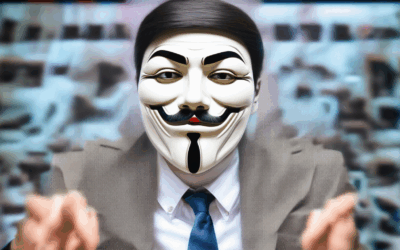In today’s digital age, the power of public opinion has never been more influential, shaping conversations across various platforms and industries. Among the most intriguing aspects of this evolution is the prevalence of anonymous public opinion commentary, a phenomenon that has redefined how feedback is shared and received. From social media discussions to religious textual analysis, anonymous feedback continues to play a pivotal role in public discourse, offering both transparency and complexities that traditional methods often lack. This article delves into the multifaceted impact of anonymous commentary, exploring its role in fostering open dialogue while addressing its potential downsides, such as incivility and lack of accountability. By examining real-world examples, including the use of free online Bible commentaries and anonymous feedback tools, we will uncover how this unique form of communication influences societal dynamics and individual behaviors. Whether you’re a casual observer or an active participant in online discussions, understanding the nuances of anonymous feedback is essential in navigating the evolving landscape of public opinion.
Key Takeaways
– Anonymity can foster positive interactions but may also lead to uncivil behavior.
– Anonymity reduces accountability, potentially leading to mean behavior and groupthink.
– Anonymity poses risks like harassment, misinformation, and technical challenges.

The Problem with Anonymous Feedback
Anonymous feedback can pose several challenges, primarily impacting trust and accountability. Here’s a breakdown of the key issues:
- Erosion of Trust
- Anonymous feedback often leads to speculation rather than concrete information. Recipients may wonder about the motives behind the feedback, which can strain relationships and reduce trust over time.
-
Lack of Accountability
- Without knowing who provided the feedback, individuals or organizations may struggle to address the issue effectively. This can result in unanswered concerns or unresolved conflicts.
-
Potential for Misinformation
- Anonymous feedback may spread inaccurate information or biases, particularly in sensitive situations. This can lead to misunderstandings and harm relationships or reputations.
-
Impact on Group Dynamics
- In group settings, anonymous feedback can create a climate of fear or defensiveness. Members may avoid contributing openly, stifling creativity and collaboration.
-
Difficulty in Follow-Up
- Feedback without contact details makes it hard to seek clarification or provide feedback on the feedback itself, leaving unresolved issues and potential frustration.
For more insights, explore how platforms like Anonypost handle feedback responsibly while preserving anonymity. Understanding these challenges is crucial for fostering healthy communication environments.
How to Submit Feedback Anonymously
Submitting feedback anonymously can be achieved through several methods, each offering unique benefits:
- Online Forms: Platforms like Google Forms and Microsoft Forms allow you to create forms that do not require user login, enabling anonymous submissions. These are ideal for quick and straightforward feedback collection.
- Third-Party Services: Tools such as Typeform and Jotform provide anonymous feedback options, often with customizable forms tailored to your needs. These services are popular for their professional appearance and ease of use.
- Email with Alias: Use a disposable email address or an alias when contacting feedback addresses to maintain anonymity. This method is useful if you prefer not to share your personal email.
- Specialized Platforms: Websites like AnonyPost are designed specifically for anonymous feedback, offering a secure and private space for users to share their thoughts without revealing their identity.
When choosing a method, consider factors such as ease of setup, customization options, security measures, and the nature of your audience. For instance, using Google Forms or a company-recommended tool may be more appropriate for formal feedback contexts, while social media platforms might suit less formal scenarios. Always review the settings to ensure anonymity is fully enabled and that your feedback is securely captured.

Can Anonymous Feedback Be Traced?
Anonymous feedback, by definition, is intended to prevent identification of the individual providing the input. However, the ability to trace anonymous feedback depends on the measures taken by the platform or organization collecting it.
Methods of Anonymity Protection
- Tokenization: Feedback is assigned a unique token or identifier instead of using personal information. This ensures that the feedback itself cannot be tied back to a specific individual.
- Pseudonymization: Personal details are replaced with a placeholder name or alias, further obscuring the identity of the feedback provider.
- Encryption: Sensitive data, including IP addresses or device identifiers, may be encrypted to prevent tracking.
- Third-Party Platforms: Feedback may be collected through platforms designed for anonymous submissions, such as anonypost.com, which ensures that user identities remain protected.
Why Anonymity Matters
Anonymous feedback mechanisms are often employed to encourage honest and candid responses without fear of negative consequences. This can lead to more genuine and constructive input, particularly in sensitive or controversial topics.
Technological Limitations
While modern systems employ robust methods to protect anonymity, there are limitations. For instance, some platforms may still collect metadata, such as IP addresses, which could potentially be used to trace feedback if combined with other data points.
Ultimately, the ability to trace anonymous feedback hinges on the policies and technologies implemented by the platform or organization handling the feedback. Well-designed systems aim to balance transparency and privacy, ensuring that feedback remains confidential while still allowing for meaningful analysis and action.

Does Anonymity Encourage Uncivil Behavior?
Anonymity has become a common feature in many online platforms, allowing users to express themselves without fear of judgment. However, the impact of anonymity on behavior remains a subject of debate. While it can foster openness and self-expression, it may also lead to uncivil behavior in certain contexts.
The Online Disinhibition Effect
Anonymity often reduces inhibitions, leading to more uninhibited behavior. This can manifest in both positive and negative ways:
- Increased self-disclosure: Users may feel freer to share personal thoughts and emotions.
- Reduced fear of repercussions: The absence of identifiable consequences can lead to bold or confrontational statements.
Examples of Positive Behavior
Anonymity can encourage constructive interactions:
- In anonymous forums, users may feel safer to discuss sensitive topics without fear of stigma.
- Support communities often thrive because participants can express themselves without fear of judgment.
Potential for Negative Behavior
Despite its benefits, anonymity can also lead to uncivil behavior:
- Harsh or aggressive comments: Users may engage in more critical or disrespectful exchanges.
- Groupthink: Anonymity can amplify existing biases or polarize discussions.
Real-World Applications
The dual nature of anonymity is evident in real-world applications:
- Anonymous whistleblowing platforms empower individuals to report wrongdoing without fear of retaliation.
- Some social media features allow users to protect their privacy while still contributing to public discourse.
Managing Online Behavior
To mitigate negative effects, platforms can implement measures:
- Encourage civil discourse by moderating comments and enforcing community guidelines.
- Educate users about the potential impacts of their words and actions.
Conclusion
Anonymity itself does not inherently encourage uncivil behavior. Its impact depends on how it is used and regulated. By fostering awareness and implementing thoughtful policies, online spaces can harness the benefits of anonymity while minimizing its drawbacks.
Why Are People Meaner When Anonymous?
Anonymity can sometimes lead to increased mean behavior due to reduced accountability and the perceived freedom to express oneself without consequences. Here’s a breakdown of the factors contributing to this phenomenon:
- Lack of Accountability: When people are anonymous, they may feel less responsible for their words and actions. This can result in behaviors they wouldn’t normally exhibit in person.
- Reduced Fear of Consequences: The absence of real-world repercussions can embolden individuals to say or do things they might otherwise regret. Online interactions often lack the immediacy of face-to-face encounters.
- Groupthink and Social Influence: In anonymous environments, individuals may conform more easily to negative trends within a group, as they feel less pressure to assert their own opinions or behave differently.
- Perceived Freedom to Anonymously Criticize: Anonymity can create a sense of license to criticize others without fear of backlash, leading to harsher feedback that might not be expressed in more public or professional settings.
- Platform Moderation Failures: Some online platforms lack effective moderation, allowing mean comments to go unchecked and potentially escalate negative behavior.
Understanding these dynamics can help us recognize the importance of fostering respectful online communities and encouraging empathy, even in anonymous interactions.

What is the Problem with Anonymity?
Anonymity has become a common feature in many online platforms, allowing users to express themselves without fear of judgment. However, it also presents several challenges and issues that can lead to negative consequences.
1. Harassment and Stalking
One significant problem with anonymity is the potential for harassment and stalking. Perpetrators can create multiple anonymous accounts to repeatedly target victims, making it difficult for them to escape the abuse. This cycle of torment can severely impact mental health and safety.
2. Spread of Misinformation
Anonymous accounts often spread false information, rumors, and conspiracy theories. Without accountability, it becomes easier for malicious actors to disseminate harmful content, leading to widespread panic or confusion among the public.
3. Lack of Accountability
When individuals can remain anonymous, it becomes harder to hold them responsible for their actions. This includes illegal activities, hate speech, and other harmful behaviors that may go unpunished due to the lack of traceable identities.
4. Technical Challenges
The technical aspect of managing anonymous accounts poses significant challenges for platform moderators and law enforcement. It becomes difficult to identify and ban repeat offenders or track down those involved in illegal activities.
5. Psychological Impact on Victims
For victims of online harassment, the anonymity of perpetrators can exacerbate feelings of isolation and helplessness. They may struggle to find support or report incidents without fear of further retaliation.
Conclusion
While anonymity offers benefits such as privacy and protection, its misuse can lead to serious issues. Addressing these challenges requires a balance between safeguarding user privacy and maintaining a safe online environment. Platforms must implement robust systems to identify and mitigate risks associated with anonymous accounts.




0 Comments